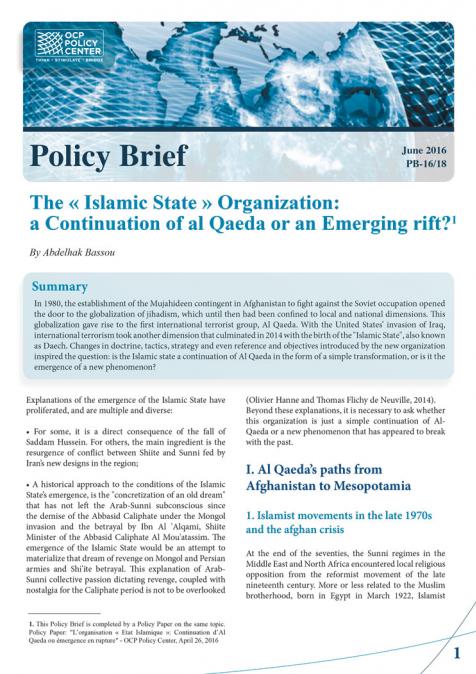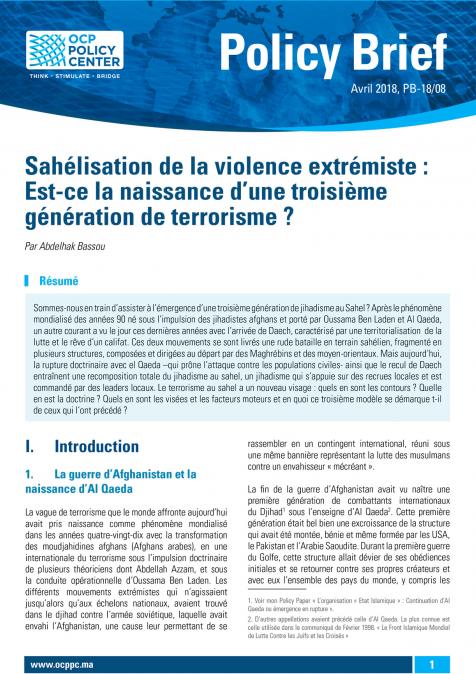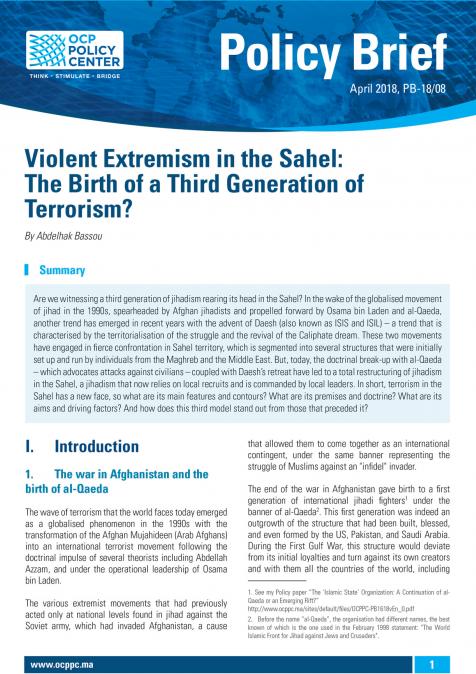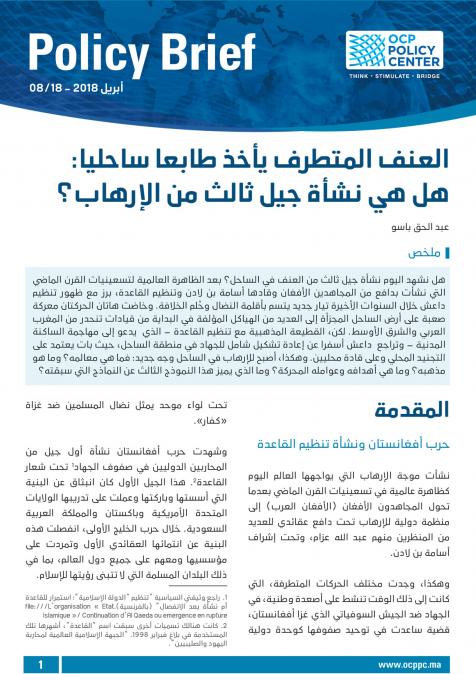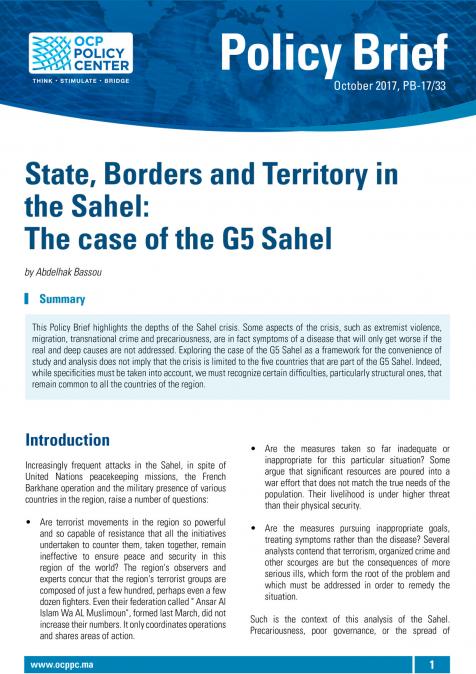Publications /
Policy Brief
In 1980, the establishment of the Mujahideen contingent in Afghanistan to fight against the Soviet occupation opened the door to the globalization of jihadism, which until then had been confined to local and national dimensions. This globalization gave rise to the first international terrorist group, Al Qaeda. With the United States’ invasion of Iraq, international terrorism took another dimension that culminated in 2014 with the birth of the "Islamic State", also known as Daech. Changes in doctrine, tactics, strategy and even reference and objectives introduced by the new organization inspired the question: is the Islamic state a continuation of Al Qaeda in the form of a simple transformation, or is it the emergence of a new phenomenon?

